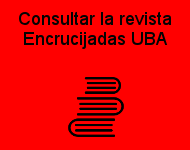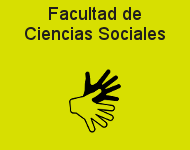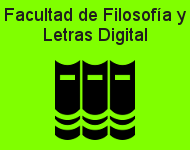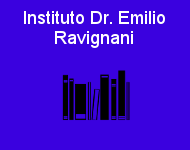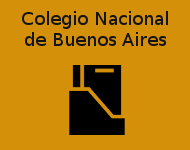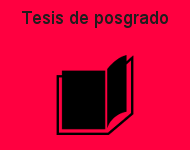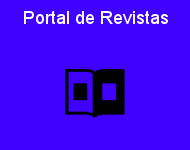En:
Pensar en Derecho, a. 2, no. 2
Editor:
Universidad de Buenos Aires. Facultad de Derecho. Departamento de Publicaciones
Fecha:
2013
Tipo de documento:
artículo - info:eu-repo/semantics/publishedVersion
Formato:
application/pdf | kb. | p. 33-80
Idioma:
español
Palabras clave:
Keywords:
Descripción:
El atentado terrorista del 18 de julio de 1994 ocurrido en Buenos Aires en la Asociación Mutual Israelita Argentina (AMIA) y su antecedente, del 17 de marzo de 1992, en la Embajada de Israel en la Argentina fueron los hechos de mayor gravedad producidos por el terrorismo internacional en nuestro país y produjeron consecuencias políticas y jurídicas que se prolongan hasta nuestros días. Especialmente, en el caso AMIA, las distintas causas judiciales que se abrieron como consecuencia del atentado se mantienen hasta ahora sin resolverse, luego de innumerables marchas y contramarchas en las que se llegó hasta un fallo de la Corte Suprema de Justicia de la Nación, con evidencias contundentes acerca de actos de corrupción, nulidades, interferencia de los servicios de inteligencia, intervención del poder político y participación de actores internacionales que, en su conjunto, provocaron una profunda y terrible distorsión en la búsqueda de la verdad y de la justicia sobre el caso. El resultado de esta situación es, por un lado, la impunidad y el doloroso reclamo de las víctimas del atentado que luchan por una revisión del caso con un cercano juicio oral en el horizonte judicial. Por el otro, una exhaustiva investigación en manos del fiscal especial para la causa, con la intervención del juez competente, cuyas principales conclusiones son la acusación del atentado al gobierno de la República Islámica de Irán, es decir terrorismo de Estado y la emisión de órdenes de captura internacional de Interpol para altos funcionarios iraníes a quienes se responsabiliza de la organización del atentado. El gobierno argentino instó al gobierno iraní, hace ya varios años, a emprender negociaciones mutuas para acordar una eficaz cooperación judicial bilateral. Luego de varias negativas, Irán aceptó y el producto de esa negociación fue el Memorándum de Entendimiento, suscripto por los gobiernos de ambos Estados, en Addis Abeba, el 27 de enero de 2013. El acuerdo logrado crea una Comisión de la Verdad, con sede en Teherán (Irán), órgano investigador que tendrá por función estudiar y revisar las evidencias existentes para elaborar un informe final, luego de una eventual audiencia en la que los acusados serán interrogados. El informe final proporcionará recomendaciones que ambos Estados deberán tener en cuenta en sus acciones futuras con respecto al juicio. Evidentemente, este acto jurídico internacional, de gran relevancia por las circunstancias y el contexto en que se produce, debería impulsar enormes expectativas en la consecución de la verdad y la justicia. Sin embargo, está lleno de ambigüedades, vacíos y dudas y, más grave aún, de sospechas jurídicas y políticas que conspiran contra sus objetivos y contra la transparencia que debería guiar la negociación y el resultado de la misma. Esta investigación, y las reflexiones sobre este tratado internacional especialmente delicado por las implicancias que conlleva, tratan de aportar algo de luz en medio de las sombras que acechan para evitar que se devele el misterio de un verdadero crimen internacional.
Ver resumen completo Abstract:
The terrorist attack of 18 July 1994 that took place in Buenos Aires - at the Argentine Israelite Mutual Association (AMIA) - and its antecedent, the March 17 1992 bombing of the Israeli Embassy in Argentina were the gravest incidents of international terrorism in our country and they resulted in political and legal implications that are continue until our days. Especially, in the AMIA case, the various judicial cases that were opened as a result of the attack, have not yet been resolved and have seen comings and goings that resulted in a decision by the Supreme Court of Justice of the Nation, with convincing evidence about acts of corruption, procedural nullities, interference by the intelligence services, intervention of the political power and participation of international actors that, as a whole, led to a profound and terrible distortion in the search for truth and justice on the case. The result of this situation is, on the one hand, the impunity and the painful claim of the victims of the attack who are fighting for a case review, with a nearby oral proceeding in the horizon. On the other hand, a thorough investigation in the hands of the special prosecutor for the cause, with the intervention of a competent judge, whose main conclusions are the attribution of the attack to the government of the Islamic Republic of Iran - that is to say, an indictment of State terrorism - and the issuance of Interpol international arrest warrants for senior Iranian officials who are responsible for the organization of the attack. The Argentine government urged the Iranian government, several years ago, to undertake negotiations to agree to an effective mutual bilateral judicial cooperation. After several negatives, Iran accepted and the product of this negotiation was the Memorandum of Understanding, signed by the governments of both States, in Addis Abeba, on January 27th 2013. The agreement creates a Truth Commission, with headquarters in Tehran (Iran), an investigating body that will study and review the existing evidence to produce a final report, after hearings in which the accused shall be questioned. The final report will provide recommendations to both States must take into account in their future actions with respect to the trial. Obviously, this international legal act of great relevance for the circumstances and the context in which it is produced, should boost huge expectations in the pursuit of truth and justice. However, it is full of ambiguities, gaps and doubts, and, even more serious, of legal and political suspicions that conspire against its goals and against the transparency which should guide the negotiation and its result. This research and the reflections on this particularly sensitive international treaty (by the implications that entails) try to cast some light in the midst of the shadows that lurk and that attempt to prevent the resolution of the mystery of a true international crime.
See complete abstract Identificador(es):
Filiación Institucional:
Fil: Álvarez, Omar Alberto. Universidad de Buenos Aires. Facultad de Derecho. Cátedra Derecho Internacional Público. Buenos Aires, Argentina
Fil: Álvarez, Omar Alberto. Universidad de Buenos Aires. Facultad de Derecho. Cátedra Fuentes del Derecho Internacional. Buenos Aires, Argentina
Fil: Álvarez, Omar Alberto. Universidad de Buenos Aires. Facultad de Derecho. Postgrado. Buenos Aires, Argentina
Fil: Álvarez, Omar Alberto. Universidad de Buenos Aires. Facultad de Derecho. Cátedra Fuentes del Derecho Internacional. Buenos Aires, Argentina
Fil: Álvarez, Omar Alberto. Universidad de Buenos Aires. Facultad de Derecho. Postgrado. Buenos Aires, Argentina
Institución aportante:
Facultad de Derecho
Biblioteca cooperante:
Biblioteca de la Facultad de Derecho
Derechos:
info:eu-repo/semantics/openAccess
https://creativecommons.org/licenses/by-nc-nd/2.5/ar/
https://creativecommons.org/licenses/by-nc-nd/2.5/ar/
Descargar texto: 3074.PDF  (tamaño kb)
(tamaño kb)
 (tamaño kb)
(tamaño kb) Cita bibliográfica:
Álvarez, Omar Alberto (2013). El acuerdo argentino-iraní sobre el caso AMIA : expectativas y decepciones (artículo). Universidad de Buenos Aires. Facultad de Derecho. Departamento de Publicaciones. [consultado: ] Disponible en el Repositorio Digital Institucional de la Universidad de Buenos Aires: <http://www.derecho.uba.ar/publicaciones/pensar-en-derecho/revistas/2/el-acuerdo-argentino-irani-sobre-el-caso-amia-expectativas-y-decepciones.pdf>


